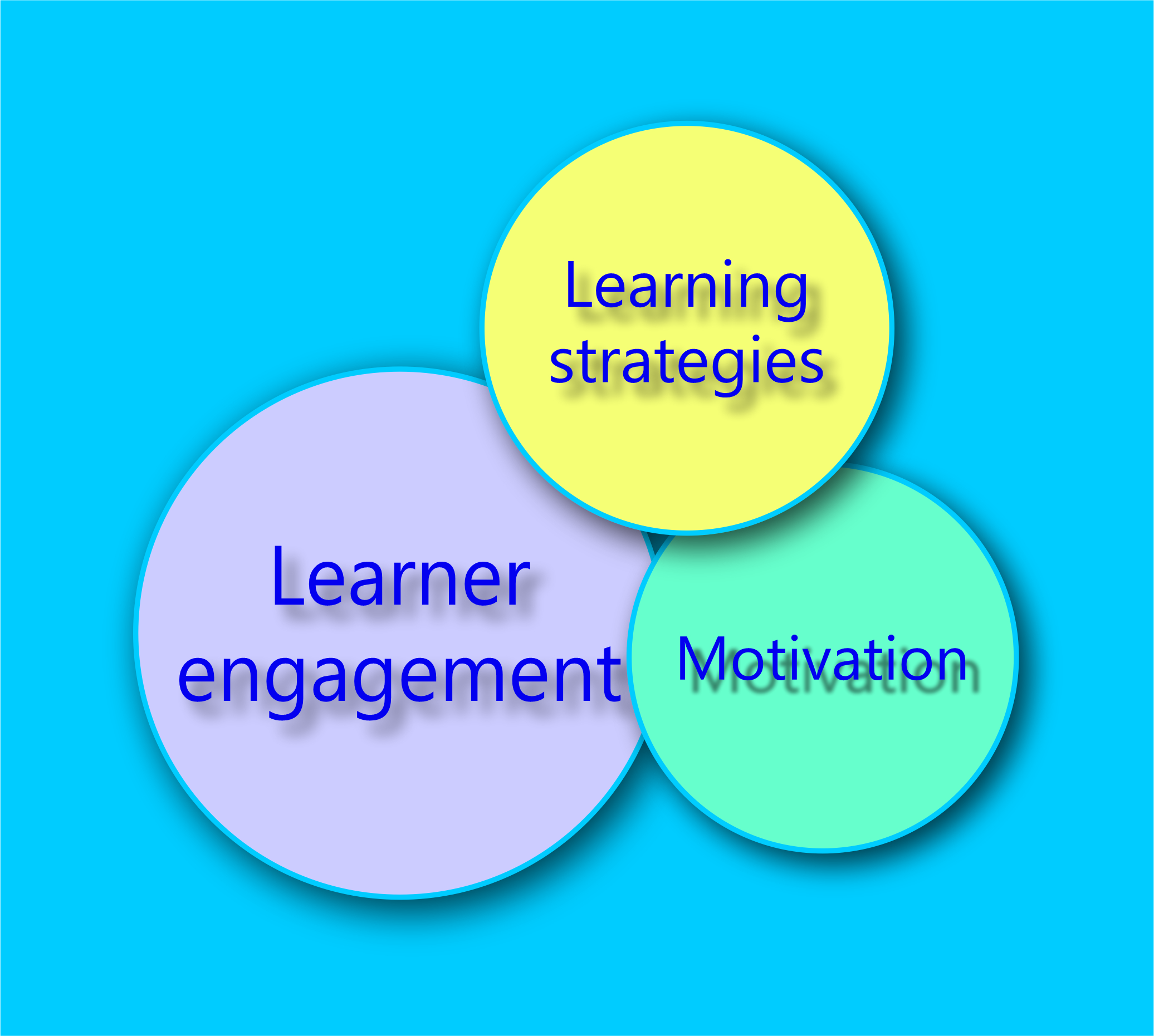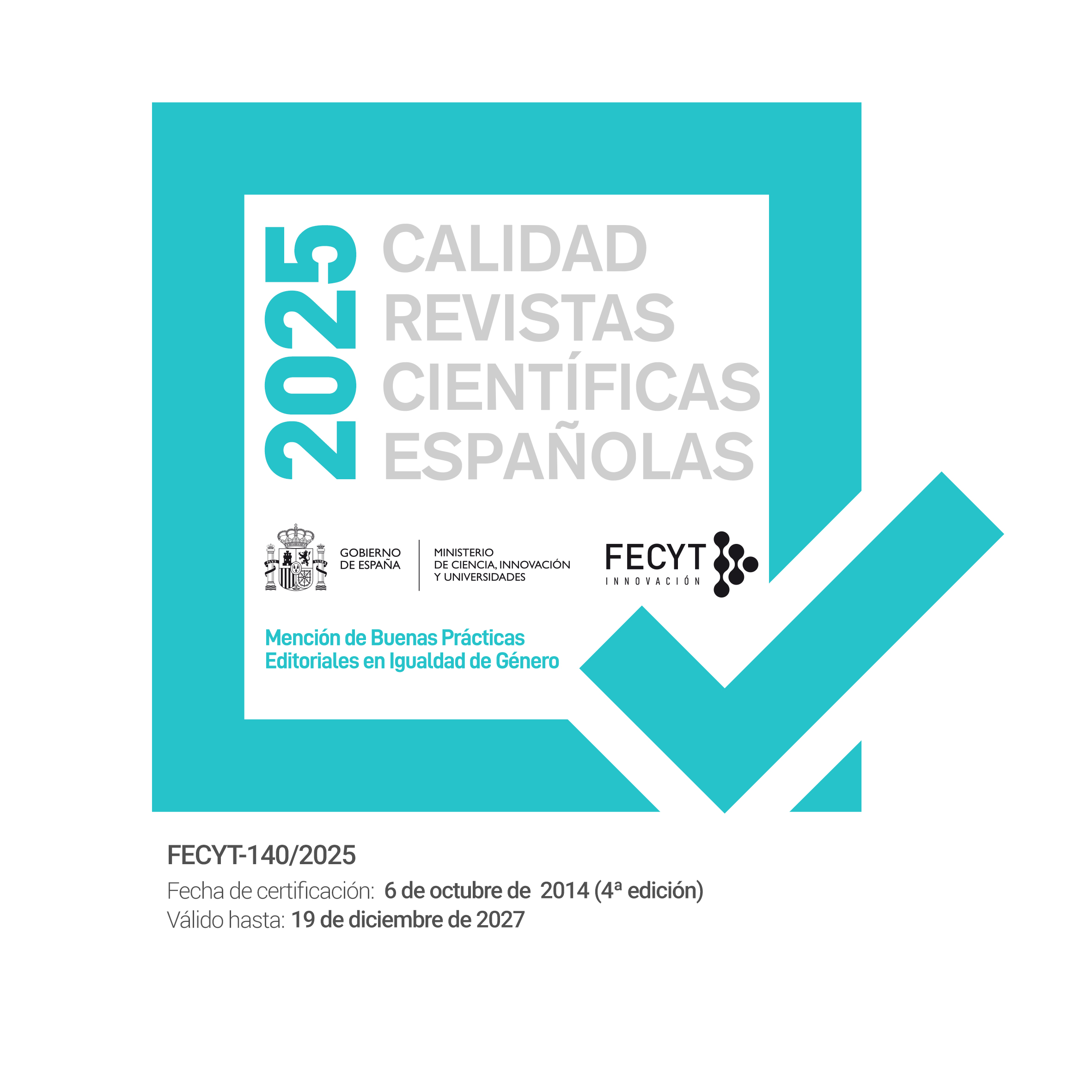Learner engagement, motivación académica y estrategias de aprendizaje de estudiantes universitarios
DOI:
https://doi.org/10.5944/educxx1.36951Palabras clave:
learner engagement, estrategias de aprendizaje, estudiantes universitarios, motivaciónResumen
Establecer y promover estrategias de aprendizaje eficaces en el contexto universitario resulta fundamental para la mejora del rendimiento académico y desarrollo personal. Esta etapa se sustenta en la confluencia de factores estratégicos conductuales, cognitivos y emocionales, que permiten al alumnado ajustarse satisfactoriamente a las demandas del contexto académico y definir sus estrategias. El objetivo de esta investigación es estudiar el efecto mediador del learner engagement entre la motivación y las estrategias de aprendizaje. Se aplicó un modelo reflectivo de ecuaciones estructurales (PLS-SEM) en función del marco teórico propuesto, desde una perspectiva explicativa-predictiva. En este estudio, participan 648 estudiantes universitarios, de los Grados de Educación, 417 son mujeres, (64.3%) y 231 hombres (31.7%), con una edad media de 19.40 años (±3.67). Se utilizaron los instrumentos: Échelle de Motivation en Éducation (EME), Escala Utrecht de Engagement en el Trabajo (UWES) y Escala de Estrategias de Aprendizaje (ACRA). Los resultados mostraron la relación entre variables, siendo los coeficientes de determinación: estrategias de aprendizaje [(Q2 = .295); (R² = .456)]; learner engagement [(Q2 = .314); (R² = .364)], en la estimación del modelo, indicando un ajuste adecuado. Además, se corroboró el efecto potenciador del learner engagement entre la motivación y las estrategias de aprendizaje. La presente investigación ha demostrado que existe relación significativa entre las variables de estudio, constatando la necesidad de implementar formación transversal en estrategias de aprendizaje a partir de factores internos, como learner engagement y motivación, para fortalecer tanto los procesos adaptativos como el rendimiento personal y académico.
Descargas
Citas
Agger, C., & Koenka, A. (2019). Does attending a deeper learning school promote student motivation, engagement, perseverance, and achievement? Psychology in the Schools, 57(4), 627-645. https://doi.org/10.1002/pits.22347.
Álvarez, A., Suárez-Fernández, N., Tuero-Herrero, E., Núñez-Pérez, J. C., Valle-Arias, A., & Regueiro-Fernández, B. (2015). Implicación familiar, autoconcepto del adolescente y rendimiento académico. European Journal of Investigation in Health, Psychology and Education, 5(3), 293-311.
Belando, N., Ferriz-Morell, R., & Moreno-Murcia, J. A. (2012). Propuesta de un modelo para la mejora personal y social a través de la promoción de la responsabilidad en la actividad físico-deportiva. RICYDE. Revista Internacional de Ciencias del Deporte, 29(8), 202-222. http://dx.doi.org/10.5232/ricyde2012.02902.
Bélanger, C., & Ratelle, C. F. (2021). Passion in University: The role of the Dualistic Model of Passion in explaining students’ academic functioning. Journal of Happiness Studies, 22(5), 2031-2050. https://doi.org/10.1007/s10902-020-00304-x
Ben-Eliyahu, A., Moore, D., Dorph, R., & Schunn, C. D. (2018). Investigating the multidimensionality of engagement: affective, behavioral, and cognitive engagement across science activities and contexts. Contemporary Educational Psychology, 53, 87-105. https://doi.org/10.1016/j.cedpsych.2018.01.002
Becker, J. M., Ringle, C. M., & Sarstedt, M. (2018). Estimating moderating effects in PLS-SEM and PLSc-SEM: interaction term generation data treatment. Journal of Applied Structural Equation Modeling, 2(2), 1-21. https://doi.org/10.47263/JASEM.2(2)01
Biggs, J. (1993). What do inventories of students´ learning processes really measure? A theoretical review and clarification. British Journal of Educational Psychology, 63, 3-19. https://doi.org/10.1111/j.2044-8279.1993.tb01038.x
Cobo-Rendón, R., López-Angulo, Y., Sáez-Delgado, F., & Mella-Norambuena, J. (2022). Engagement, academic motivation, and adjustment of university students. Revista Electrónica Educare, 26(3), 1-19. https://doi.org/10.15359/ree.26-3.15
Cohen, J. (1988). Statistical power analysis for the behavioral sciences (2ª Ed.).LEA.
Deci, E. L., & Ryan, R. M. (1985). Intrinsic motivation and self-determination in human behavior. Plenum Press.
Denle, D., Topuz, K., & Eryarsoy, E. (2020). Development of a Bayesian belief network-based DSS for predicting and understanding freshmen student attrition. European Journal of Operational Research, 281(3), 575-587. https://doi.org/10.1016/j.ejor.2019.03.037
De la Fuente, J., & Justicia, F. (2003). Escala de estrategias de aprendizaje ACRA abreviada para alumnos universitarios. Revista Electrónica de Investigación Psicoeducativa y Psicopedagógica, 1, 139-158.
Ergen, B., & Kanadli, S. (2017). The effect of self-regulated learning strategies on academic achievement: a meta-analysis study. Eurasian Journal of Educational Research, 69, 55-74.
Ferrer, J., Ringer, A., Saville, K., Parris, M. A., & Kashi, K. (2020). Students’ motivation and engagement in higher education: the importance of attitude to online learning. Higher Education, 83, 317-338. https://doi.org/10.1007/s10734-02000657-5
Hair, J. F., Sarstedt, M., Ringle, C. M., Gudergan, S. P., Castillo-Apraiz, J., Cepeda-Carrión, G. A., & Roldán, J. L. (2021). Manual avanzado de partial least squares structural equation modeling (PLS-SEM). Omnia Science.
Kline, R. B. (2016). Principles and practice of structural equation modeling (4ª ed.). The Guilford Press.
Larson, K. E., Bottiani, J. H., Pas, E. T., Kush, J. M., & Bradshaw, C. P. (2019). A multilevel analysis of racial discipline disproportionality: a focus on student perceptions of academic engagement and disciplinary environment. Journal of School Psychology, 77, 152-167. https://doi.org/10.1016/j.jsp.2019.09.003
Li, N., Marsh, V., Rienties, B., & Whitelock, D. (2017). Online learning experiences of new versus continuing learners: a large-scale replication study. Assessment & Evaluation in Higher Education, 42(4), 657-672. https://doi.org/10.1080/02602938.2016.1176989
Lorenzo-Seva, U., & Van Ginkel, J. R. (2016). Imputación múltiple de valores perdidos en el análisis factorial exploratorio de escalas multidimensionales: estimación de las puntuaciones de rasgos latentes. Anales de Psicología , 32(2), 596-608. https://doi.org/10.6018/analesps.32.2.215161
Martínez-Ávila, M., & Fierro-Moreno, E. (2018). Aplicación de la técnica PLS_SEM en la gestión del conocimiento: un enfoque técnico práctico. Revista Iberoamericana para la Investigación y el Desarrollo Educativo, 8(16), 130-164. https://doi.org/10.23913/ride.v8i16.336
Núñez, J. L., Martín-Albo, J., & Navarro, J. G. (2005). Validación de la versión española de la Échelle de Motivatión en Éducation. Psicothema, 17(2) 344-349.
Oriol-Granado, X., Mendoza-Lira, M., Covarrubias-Apablaza, C. G., & Molina-López, V. M. (2017). Emociones positivas, apoyo a la autonomía y rendimiento de estudiantes universitarios: el papel mediador del compromiso académico y la autoeficacia. Revista de Psicodidáctica, 22(1), 45-53. https://doi.org/10.1016/S1136-1034(17)30043-6
Perkmann, M., Salandra, R., Tartari, V., McKelvey, M., & Hughes, A. (2021). Academic engagement: a review of the literature 2011-2019. Research Policy, 50(1). https:// doi.org/10.1016/j.respol.2020.104114.
Ramírez-Asís, E. H., Maguiña-Palma, M. E., & Huerta-Soto, R. M. (2020). Actitud, satisfacción y lealtad de los clientes en las cajas municipales del Perú. RETOS. Revista de Ciencias de la Administración y Economía, 10(20), 329-343. https://doi.org/10.17163/ret.n20.2020.08
Reeve, J. (2013). How students create motivationally supportive learning environments for themselves: the concept of agentic engagement. Journal of Educational Psychology, 105, 579-595. https://doi.org/10.1037/a0032690
Román, J. M., & Gallego, S. (1994). Escala de Estrategias de Aprendizaje, ACRA. TEA Ediciones.
Ryan, R. M., & Deci, E. L. (2019). Research on intrinsic and extrinsic motivation is alive, well, and reshaping 21st-century management approaches: brief reply to Locke and Schattke (2019). Motivation Science, 5(4), 291-294. https://doi.org/10.1037/mot0000128
Sandoval-Muñoz, M. J., Mayorga-Muñoz, C. J., Elgueta-Sepúlveda, H. E., Soto-Higuera, A. I., Viveros-Lopomo, J., & Riquelme-Sandoval, S. V. (2018). Compromiso y motivación escolar: una discusión conceptual. Revista Educación, 42(2), 66-79. https://doi.org/10.15517/revedu.v42i2.23471
Smith, N., Brown, J., Tran, T., & Suárez-Orozco, C. (2020). Parents, friends and immigrant youths’ academic engagement: a mediation analysis. International Journal of Psychology, 55(5), 743-753. https://doi.org/10.1002/ijop.12672
Salanova, M., & Schaufeli, W. B. (2009). El engagement de los empleados. Cuando el trabajo se convierte en pasión. Alianza Editorial.
Santana-Monagas, E., Putwain, D. W., Núñez, J. L., Loro, J. F., & León, J. (2022). Do teachers’ engaging messages predict motivation to learn and performance? Revista de Psicodidáctica, 27(1), 86-95. https://doi.org/10.1016/j.psicoe.2021.11.001
Schaufeli, W. B. (2017). Applying the Job Demands-Resources model: a ‘how to’ guide to measuring and tackling work engagement and burnout. Organizational Dynamics, 46(2), 120-132. https://doi.org/10.1016/j.orgdyn.2017.04.008
Sharp, J. G., Sharp, J. C., & Young, E. (2020). Academic boredom, engagement and the achievement of undergraduate students at university: a review and synthesis of relevant literature. Research Papers in Education, 35(2), 144-184. https://doi.org/10.1080/02671522.2018.1536891
Schaufeli, W., & Bakker, A. (2004). Job demands, job resources and their relationship with burnout and engagement: a multisample study. Journal of Organizational Behavior, 25, 293-315. https://doi.org/10.1002/job.248
Truta, C., Parv, L., & Topala, I. (2018). Academic engagement and intention to drop out: levers for sustainability in higher education. Sustainability, 10(12), 4637. https://doi.org/10.3390/su10124637
Vallerand, R. J., Blais, M. R., Brière, N. M., & Pelletier, L. G. (1989). Construction et validation de l´Échelle de Motivation en Éducation (EME). Canadian Journal of Behavioral Sciences, 21, 323-349. https://doi.org/10.1037/h0079855
van Rooij, E. C. M., Jansen, E. P. W. A. & van de Grift, W. J. C. M. (2018). First-year university students’ academic success: the importance of academic adjustment. European Journal of Psychology of Education, 33(4), 749-767. https://doi.org/10.1007/s10212-017-0347-8
Werner, K. M., & Milyavskaya, M. (2018). Motivation and self‐regulation: the role of want‐to motivation in the processes underlying self‐regulation and self‐ control. Social and Personality Psychology Compass, 13(1), 1-32. https://doi.org/10.31234/osf.io/yq2j7
Williams-Oyarce, C., Santelices-Cuevas, L., del Río-Cea, M. P., Soto-Suazo, M., Bittner-Salgado, S., & Asenjo-Morosetti, A. (2022). Estrategias de aprendizaje de estudiantes de primer año de ingreso a Kinesiología y su relación con el rendimiento académico. Bordón. Revista De Pedagogía, 74(2), 111-123. https://doi.org/10.13042/Bordon.2022.89741
World Medical Association (2013). World Medical Association Declaration of Helsinki: ethical principles for medical research involving human subjects. JAMA, 310(20), 2191-2194. https://doi.org/10.1001/jama.2013.281053
Zimmerman, B. J. (2008). Investigating self-regulation and motivation: Historical background, methodological developments, and future prospects. American Educational Research Journal, 45(1), 166-183. https://doi.org/10.3102/0002831207312909

Descargas
Publicado
Cómo citar
Número
Sección
Licencia
Derechos de autor 2023 Óscar Gavín-Chocano, Inmaculada García-Martínez, Eufrasio Pérez-Navío, Antonio Luque de la Rosa

Esta obra está bajo una licencia internacional Creative Commons Atribución-NoComercial 4.0.
La revista Educación XX1 se publica bajo licencia Creative Commons Reconocimiento-NoComerciaL 4.0 (CC BY-NC 4.0). Se permite la generación de obras derivadas siempre que no se haga un uso comercial. Tampoco se puede utilizar la obra original con finalidades comerciales.










